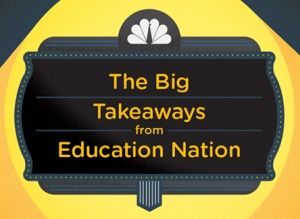Now that the 2012 election is over, Monday morning quarterbacks are examining their play books to determined what did and did not work and where they stand on their key issues. The same holds true for proponents of green initiatives. The commitment and actions of green coalitions, scientists and ordinary committed citizens over the past few years have yielded remarkable results in the fight to give climate change and global warming the attention it requires. While it is unfortunate that it took Hurricane Sandy’s catastrophic descent on major northeastern urban centers in this country to garner the call to action from political leaders, it still is important to recognize that the platform is here now. With the visual record of Sandy’s attack fresh in our minds and the costs of the devastation still rising, it is mandatory that we use this window of opportunity to aggressively move forward to advance a green agenda to address the problem of climate change.
Today we celebrate the reelection of Barack Obama, who, in his victory speech, specifically addressed the need for a country “that isn’t threatened by the destructive power of a warming planet“. Our agenda finally has made it to the national spotlight. As concerned citizens, we must hold the President and other elected officials accountable for addressing this problem. To do this, the green movement must rethink and regroup its strategies with the goal to establish a major voting block inclusive of all people committed to protect and preserve the earth. We particularly need the energy of young people ages 18 to 30, who have a real stake in this movement because the condition of the planet directly affects their tomorrow. With a strong lobby and voting block established, the green movement can secure the commitment of elected officials and candidates who have the option of effectively representing this voting block or face defeat. This is our time to propel climate change to the position it deserves, upfront and center with health care, foreign policy and the economy. This is a natural progression as this issue is fully woven into the pattern of all of every existing item on the national agenda and can no longer be ignored.
As we address the hard work ahead for the green movement, it is important that we celebrate the victories achieved in this election.
- The persistent efforts and education by the League of Conservation Voters and other policy interest groups and watchdogs resulted in the defeat of three “Flat Earth Fivers”, namely Joe Walsh of Illinois, Ann Marie Buerkle of New York and Francisco Conseco of Texas.
- Rhode Island voters approved a bond for $0 million to fund wastewater and drinking water projects.
- The state of Maine approved several water, sewer, conservation and transportation bonds.
- The city of Longmont, Colorado anti-fracking activists were successful in upholding a ban on hydraulic fracking and storage of fracking waste within city limits.
- Seattle, Washington voters overwhelmingly approved a 30-year bond for $290 million to rebuild the Elliott Bay seawall.
There were a lot of lessons to be learned from this contentious election campaign. Perhaps the most important is the admonition by former President Bill Clinton at the Democratic Convention that “we are all in this together’. With this in mind, let’s use this new day to roll up our sleeves and work hard to live green, be green.


